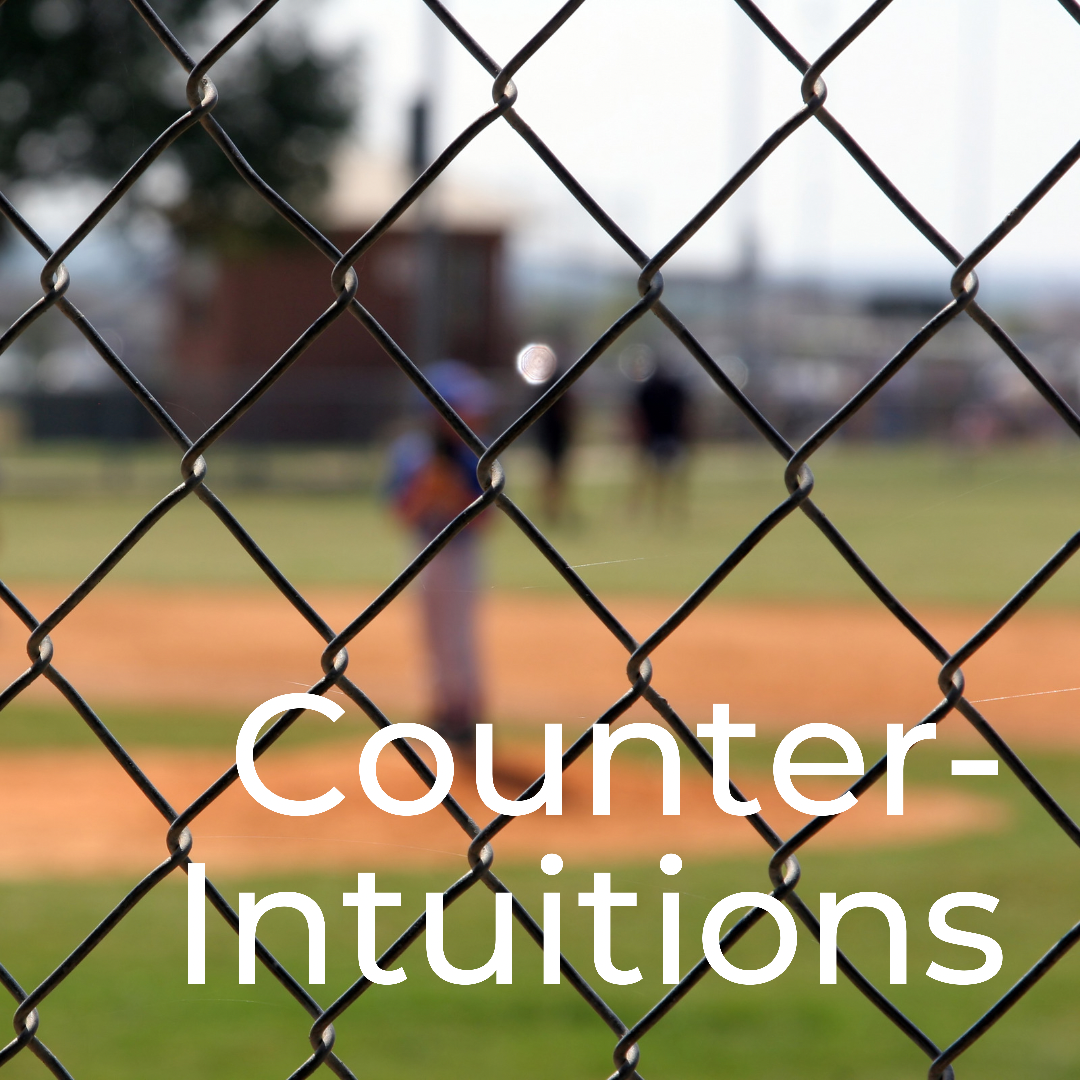
Counter-Intuitions
One of the philosophical lessons I picked up coaching Little League baseball was that one ought never fail to attend in victory what one would otherwise address in defeat. Having said that, losses always kindled more lively conversations with my sons, as well as more personal introspection in myself, than the wins ever did. And the closer the loss, the more second-guessing there would be. It's not hard to recall some pretty painful retrospective dialogues and internal monologues that occurred after our teams? difficult losses. Should I have pulled the pitcher earlier? Might I have utilized a different batting order or positioned the outfield differently that last inning?Alternative histories, cobbled together with ?what-if?s? and ?might-have-beens,? are what sports page editorials are all about, but it isn't limited to just the sports page.
We tend to assume, or at least suspect, that there's a right decision or a good solution to every problem. In fact, we find comfort in thinking that if we just put in the work and deploy the right analysis, the correct choice will emerge. Sometimes this is the case, but usually, given the way the world works, we?re forced to make decisions with incomplete information at best. On other occasions, we?re simply presented with no good options?and even choosing among bad ones can present some pretty close calls. In a real sense, there are no solutions, just trade-offs.
Further, beyond these complexities, sometimes things go south for no good reason. In his famous 16th century treatise, Machiavelli estimated as much as 50% of the success or failure of a ?Prince? might be chalked up to mere fortune?that is, luck. Whether that figure is precisely correct or not, it's incumbent on each of us to find a way to be at peace with the notion that some things are simply outside of our control. And because we live in this world, and not a fairy tale, we have to bake in the fact that there's no perfect path through many of our problems. So what do we do? What can we do?
Steven Sample served as the president of USC for two decades and wrote a terrific book called The Contrarian's Guide to Leadership. In it, he advocates for a supple approach to decision-making. Perhaps the most intriguing counter-intuitive lesson he offers is this: never make a decision today that can reasonably be put off to tomorrow. By holding off on a decision that doesn't have to be made at the moment, the decision-maker will gain more data, more information, and more context, strategically bringing the moment of decision closer?more local, in a sense?into the world in which it will be carried out. He calls this artful procrastination. Of course, this tip doesn't tell us precisely when to pull the trigger on making a decision, but it does provide a sound rationale for being patient and letting things play out a bit more. In doing so, hopefully those lively but painful retrospective dialogues and internal monologues about difficult losses will be less frequent in the future.
In another one of Sample's compelling counter-intuitions, he suggests we not only hold off on trusting first impressions, but refrain from forming any definitive opinions at all until required to do so for some reason (which may, in fact, never occur). Reasoning from a rational perspective on human nature, Samples observes that as soon as we formulate opinions, they begin to harden. From a business standpoint, this carries the potential of closing off one's mind from objectively receiving and fairly weighing possibly important and valuable information. From a more general perspective?even a spiritual perspective?there's some appeal here, as well. The counter-intuitive, counter-cultural notion that we don't have to hold an opinion on everything and everyone seems not only wise and freeing, but also more likely to foster and cultivate conditions for grace to flourish a bit more in our lives.
Both of these ideas involve a form of discipline that requires us to refrain from doing something. In that spirit, I'll refrain from offering my own prayer today. Here's theologian Reinhold Niebuhr's instead:
God?Grant me the serenity to accept the things I cannot change, courage to change the things I can, and the wisdom to know the difference, living one day at a time; enjoying one moment at a time; taking this world as it is and not as I would have it; trusting that You will make all things right if I surrender to Your will; so that I may be reasonably happy in this life and supremely happy with You forever in the next.
Amen.
?Greg Funderburk





